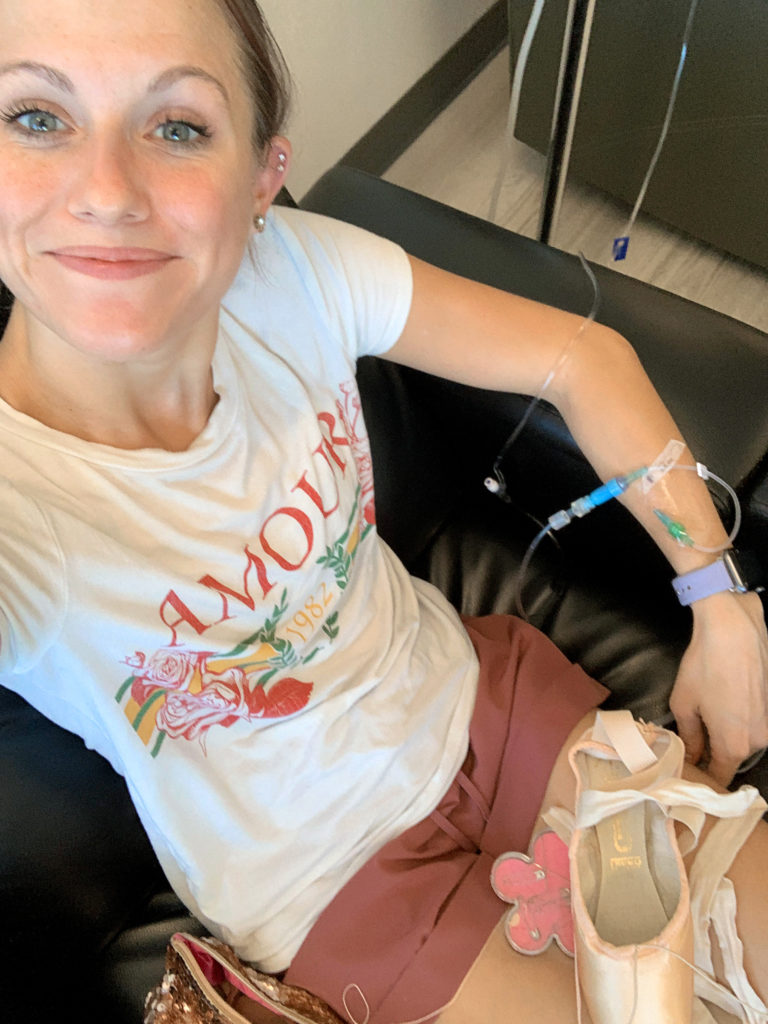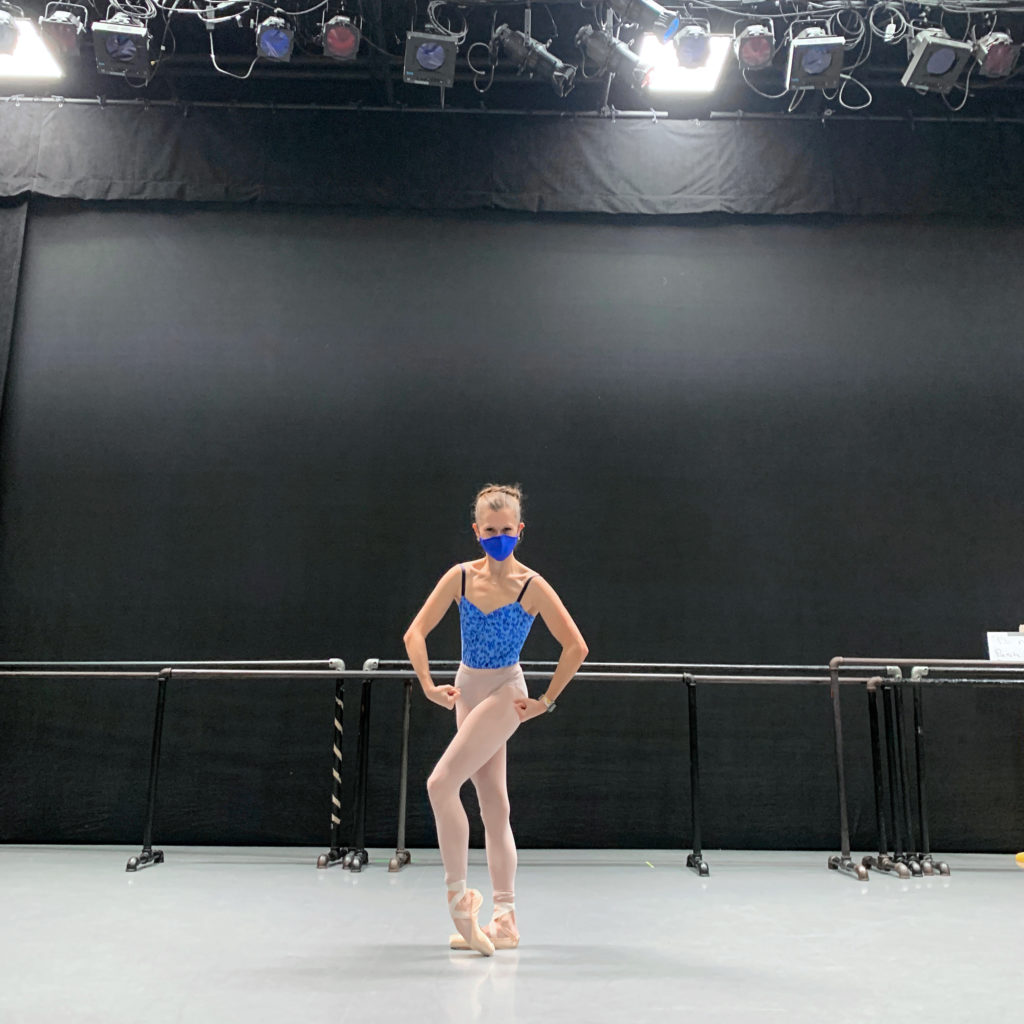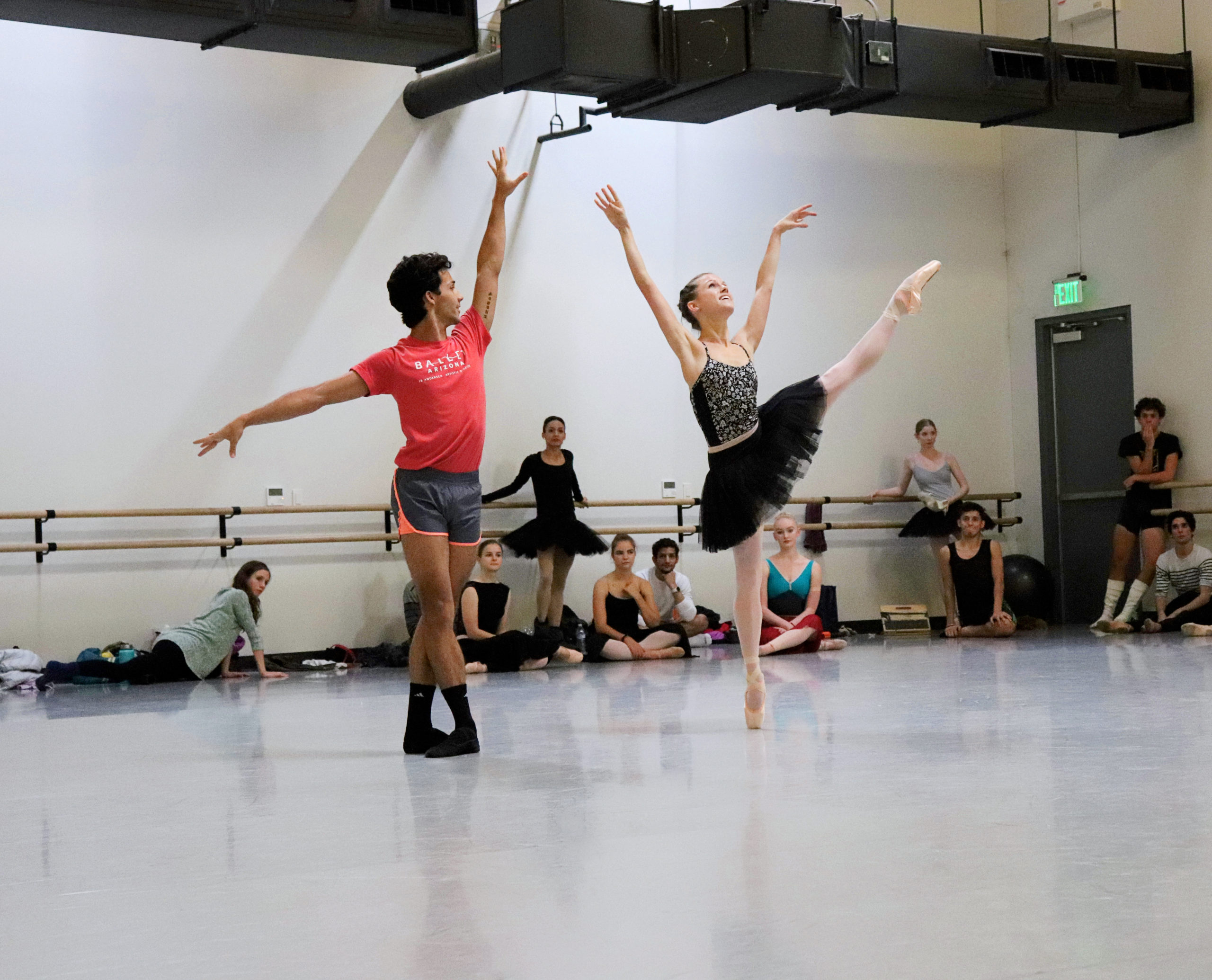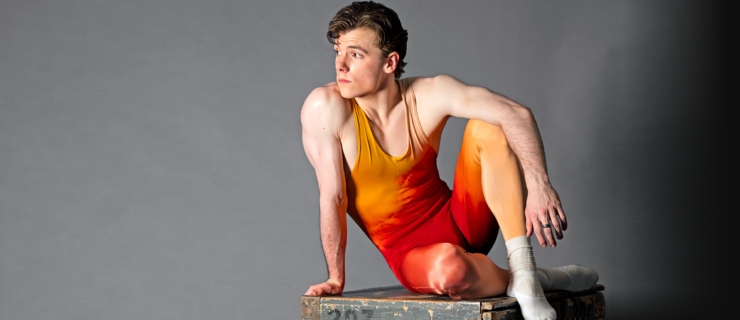Nerves of Steel: Abby Phillips Maginity Dances On Despite MS Diagnosis
Most dancers’ lives turned upside down during the March 2020 pandemic shutdown, but for Ballet Arizona’s Abby Phillips Maginity, it was more like a triple backflip. In the same week that BAZ sent the company home because of the pandemic, Maginity learned she had multiple sclerosis. Suddenly faced with this life-changing diagnosis, Maginity tenaciously set herself on a course to continue dancing at the highest level.
Multiple sclerosis, or MS, is a neurological disease that affects almost 1 million people in the U.S. There are four types of MS, but all cause disruptions to the nervous system that can result in physical, cognitive and mental health symptoms.
Three months before her diagnosis, Maginity had been rehearsing for her first principal role, as Helena in Ib Andersen’s A Midsummer Night’s Dream. She had begun experiencing what she now knows was an MS attack. Numbness that began in her fingertips spread up her hands, and whenever she would lower her head, dropping her chin to her chest, a strange shock would travel down her leg, making it numb.

“I was just dancing off of muscle memory,” says Maginity. “I also remember sewing pointe shoes, and I could see the needle in my fingers, but I couldn’t feel it.” She went to a physical therapist, thinking that the issue could be a pinched nerve. But when her prescribed exercises weren’t working, her PT recommended an MRI. The scans revealed fluid in her spine—a telltale sign of MS.
Maginity says her doctor suspects she had been dancing with the disease undiagnosed for one to three years. Looking back, discomforts that Maginity had dismissed as dance injuries, like the nerve pain in her leg that had occurred from time to time, finally added up.
“I have relapsing-remitting MS, which means your symptoms can come and go a bit. That’s why I think I was able to brush it off for so long,” says Maginity. “As dancers we learn to manage and deal with pain so normally. But this time something in my gut told me it wasn’t a dance injury anymore.”
Confronted with her diagnosis and a global pandemic, Maginity had ample privacy to process her emotions, but few distractions to provide relief. She turned to her faith and her family for strength, leaning on her husband, who had also been diagnosed with a chronic illness as a child and understood what it was like to deal with an issue beyond his control. She continued taking classes with the company over Zoom, BAZ’s artistic staff not yet aware of her condition. In April 2020 she began a course of treatment with monthly infusions of a drug called Tysabri.
Thankfully, Maginity’s doctors completely supported her ambitions to continue dancing professionally; in fact, they stressed that she needed to, since a high level of exercise is critical to slowing down the damage MS can cause. In early summer 2020, when some dancers in the company began going back to the studio, Maginity decided to give Andersen, BAZ’s artistic director, a phone call to open the line of communication about her situation. “He was so kind and responsive in a way I hadn’t planned for,” says Maginity. “It made me feel so comfortable and safe.”

With Andersen’s support, Maginity decided to keep up with classes on Zoom for a few more months; having just been diagnosed with an immune disorder, she didn’t want to risk additional exposure to COVID-19. However, she knew her place within the company was secure and that she’d continue to have a home there when she was ready to go back.
When the 2020–21 season began last fall, Maginity’s treatments were keeping her MS symptoms from progressing, and the COVID situation had calmed enough that she felt comfortable returning to in-person class and rehearsals. Her existing symptoms could still flare up from time to time, but by then her main hurdles were mental: learning to trust her body despite the disease and accept that some days she might not be able to push through fatigue the way dancers are expected to.
Maginity says, “At first I was nervous to push too hard, that I would wake up the next day and I wouldn’t be able to feel my legs.”
Watching her dance now, though, you’d never know she was struggling. Maria Simonetti, BAZ’s rehearsal and school director, says, “All of us in the artistic staff were concerned when we heard about her diagnosis, especially because it was near the beginning of the pandemic. Now we get reminded about it when she asks permission to leave early for her infusion appointment, but otherwise it is as if nothing has changed.”
Maginity is preparing for the new season at BAZ. She’ll be dancing as a blue girl in Frederick Ashton’s Les Patineurs, a role she had performed a few years earlier during an MS attack that she’ll now get to revisit.

“I’m more confident now,” says Maginity. “I’m thankful I listened to my body and proud of myself for standing strong.” She feels lucky that her experience has been positive so far, knowing that’s not the case for everyone. “I’m still brand-new to this disease,” she says, acknowledging the uncharted road that stands before her as a professional ballet dancer with MS.
The dance world is slowly getting better at recognizing that stoicism and struggling in silence doesn’t equal strength. When dancers share their stories they often discover that they’re not as isolated as they feel. Maginity hopes that opening up about her experience may help her empower and connect with other dancers, whether they’re also living with MS or dealing with another invisible illness.





